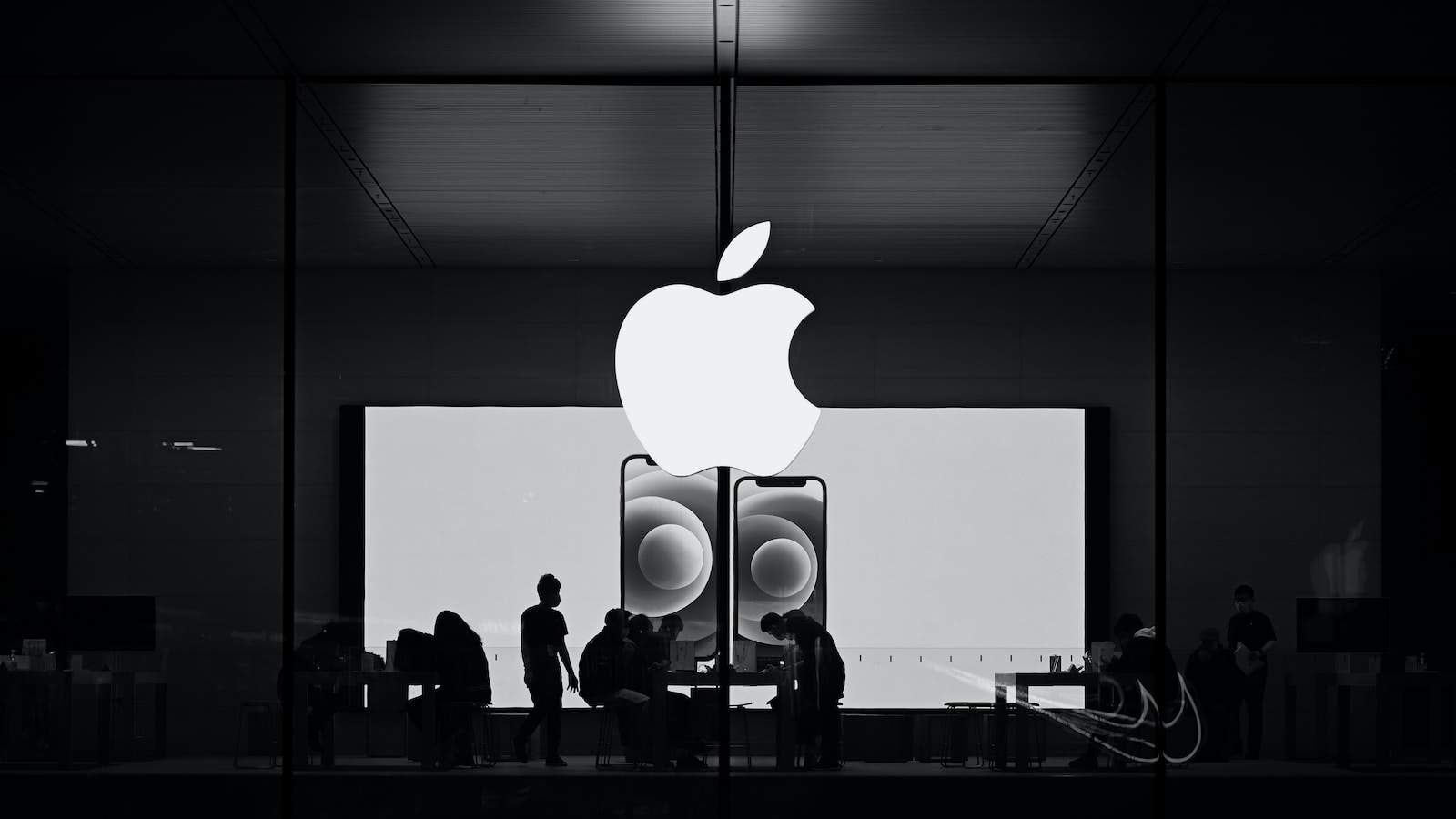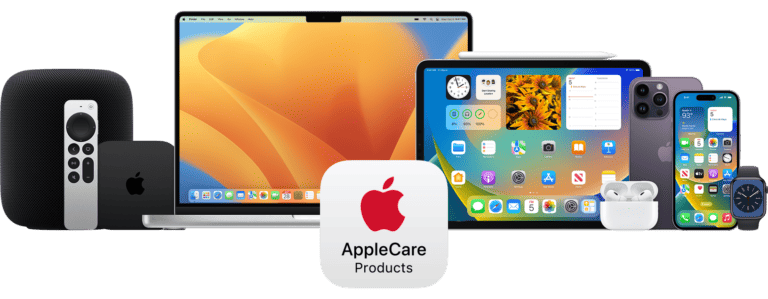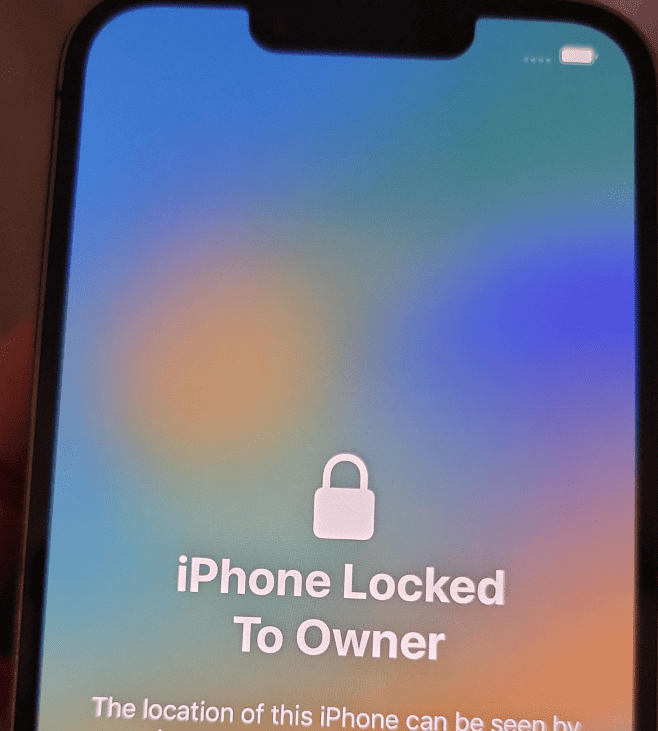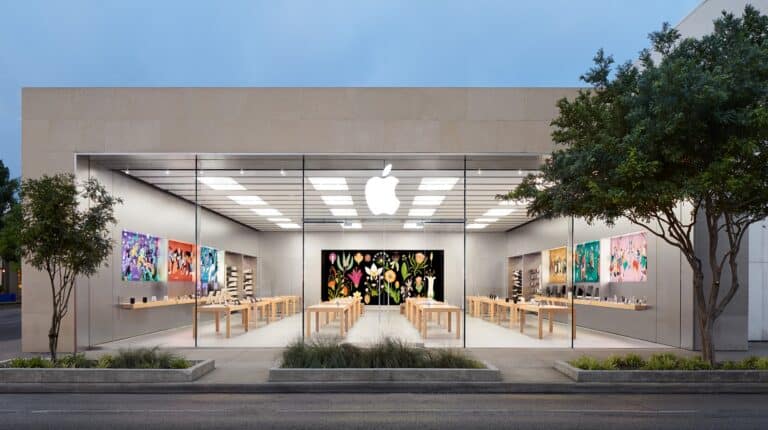The Apple Store is more than just a place to buy top quality devices. It’s a popular destination for millions of customers worldwide. The store offers a full range of Apple products, including the latest iPhones, Macs, iPads, and AirPods. Customers can also get free technical support and guidance from knowledgeable experts at the Genius Bar. The store hosts workshops, events, and educational sessions to create a sense of community and learning for everyone. Overall, the Apple Store offers an engaging experience for customers.
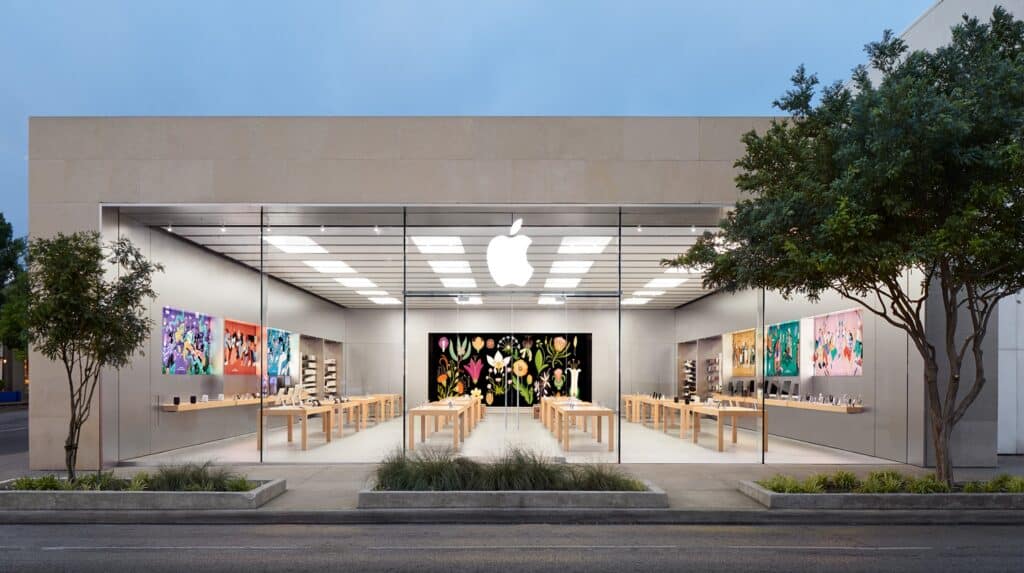
From Tysons Corner to a Global Icon
🔑 1. The Beginning (2001)
- Before 2001, Apple products were mainly sold through third-party retailers.
- Steve Jobs believed Apple needed direct retail stores to showcase the brand’s design and ecosystem.
- May 19, 2001: The first two Apple Stores opened in Tysons Corner, Virginia and Glendale, California.
- The concept was revolutionary: sleek layouts, demo units, and a “Genius Bar” for support.
🔑 2. Early Success (2001–2006)
- Despite skepticism (some analysts predicted failure), the stores were an immediate hit.
- Within the first year, Apple Stores attracted over 2.5 million visitors.
- The Genius Bar became a signature feature, offering in-person technical support.
- By 2004, Apple had over 100 stores worldwide.
🔑 3. Flagship Expansion (2006–2010)
- Apple began opening flagship stores in major cities:
- New York 5th Avenue (2006) – iconic glass cube entrance.
- London Regent Street (2004) – Europe’s first Apple Store.
- Shanghai (2010) – glass cylinder design.
- Stores became brand landmarks and tourist attractions.
🔑 4. The iPhone Era (2007–2014)
- The launch of the iPhone in 2007 transformed Apple Stores.
- Stores became the epicenter of iPhone launches, with massive lines forming worldwide.
- Apple Stores shifted from primarily selling Macs to becoming mobile-first hubs.
- By 2014, Apple had over 400 stores in 15 countries.
🔑 5. Redesign & Experience Focus (2015–2019)
- Under design chief Jony Ive and retail head Angela Ahrendts, Apple Stores were rebranded as “Apple Town Squares.”
- Focus shifted to community spaces, with:
- Today at Apple sessions (free creative and coding workshops).
- Open, minimalist layouts with “Avenues” (product zones).
- Giant video walls for presentations.
- Flagship stores like Apple Dubai Mall and Apple Park Visitor Center set new architectural standards.
🔑 6. The Modern Era (2020–2025)
- During the COVID-19 pandemic, Apple Stores adapted with:
- Online ordering + in-store pickup.
- Express storefronts for safe shopping.
- Apple invested in sustainable design, with many stores running on 100% renewable energy.
- As of 2025:
- Over 530 Apple Stores worldwide.
- Presence in 25+ countries.
- Stores remain central to Apple’s brand identity, blending retail, support, and education.
🌍 Iconic Apple Stores Around the World
- Apple Fifth Avenue (NYC, USA) – Glass cube, open 24/7.
- Apple Marina Bay Sands (Singapore) – Floating glass orb on water.
- Apple Dubai Mall (UAE) – Huge kinetic solar wings.
- Apple Piazza Liberty (Milan, Italy) – Glass fountain entrance.
- Apple Park Visitor Center (Cupertino, USA) – Direct view of Apple HQ.
✅ Summary
- 2001: First Apple Stores open (Tysons Corner & Glendale).
- 2006–2010: Global flagships become icons (NYC, London, Shanghai).
- 2007–2014: iPhone launches transform Apple Stores into cultural events.
- 2015–2019: Redesigned as “Town Squares” with workshops and community focus.
- 2020–2025: Adaptation to digital-first retail + sustainability push.
Today, the Apple Store isn’t just a shop — it’s a global brand experience center, blending technology, design, and community.
A Bite of Apple History: The Evolution of the Apple Store
The Early Days: A Store is Born
In 2001, Apple opened its first two retail stores in Tysons Corner, Virginia, and Glendale, California. These stores were a stark departure from traditional electronics retailers, featuring minimalist design, knowledgeable staff, and a focus on customer experience.
Expanding the Empire
Apple’s retail strategy proved immensely successful, and the company rapidly expanded its store network. By 2010, Apple had over 300 stores worldwide, including iconic locations like the Fifth Avenue cube in New York City and the Covent Garden store in London.
Reinventing Retail
Under the leadership of Angela Ahrendts, who joined Apple in 2014, the company reimagined the retail experience. Stores were transformed into “town squares,” featuring communal spaces for workshops, events, and product demonstrations. The focus shifted from sales transactions to building relationships with customers.

The Digital Age
With the rise of online shopping, Apple has adapted its retail strategy to embrace digital channels. The company has invested heavily in its online store, offering seamless integration with its physical stores. Customers can now buy online and pick up in-store, or get personalized support through the Apple Store app.
Milestones in Apple Store History
| Year | Milestone |
|---|---|
| 2001 | First two Apple Stores open in Virginia and California |
| 2004 | First international store opens in Tokyo |
| 2010 | 300th Apple Store opens worldwide |
| 2014 | Angela Ahrendts joins Apple as head of retail |
| 2017 | Apple unveils redesigned “town square” concept stores |
| 2020 | Apple reaches 500th store milestone |
Apple Stores Overview
Here’s a table summarizing key information about these unique retail spaces:
| Feature | Description |
|---|---|
| Concept | Apple Stores are designed to offer an immersive and interactive experience for customers to explore Apple products, receive expert advice, and participate in workshops and events. |
| Number of Stores | As of October 2023, there are over 517 Apple Stores in 25 countries and regions. |
| Store Design | Apple Stores are known for their modern and minimalist design, featuring clean lines, glass facades, and open layouts. |
| Products and Services | Apple Stores offer the full range of Apple products, including iPhones, iPads, Macs, Apple Watches, AirPods, and accessories. They also provide a variety of services, such as product setup, repairs, and technical support. |
| Genius Bar | The Genius Bar is a signature feature of Apple Stores, offering free technical support and advice from Apple-trained specialists. |
| Workshops and Events | Apple Stores regularly host workshops and events on various topics, such as photography, music production, coding, and more. |
| Community Hub | Apple Stores aim to be a community hub, providing a welcoming space for people to gather, connect, and learn. |
| Economic Impact | Apple Stores are a significant economic driver, creating jobs and generating tax revenue in the communities they serve. |
| Sustainability | Apple Stores are designed with sustainability in mind, using eco-friendly materials and energy-efficient technologies. |
| Future of Apple Stores | Apple is constantly innovating and evolving its retail experience, with a focus on integrating technology and creating personalized experiences for customers. |
| Challenges | Apple Stores face challenges such as online competition, changing consumer preferences, and rising costs. |

Additional Information:
- The first Apple Store opened in May 2001 in Tysons Corner, Virginia.
- Apple Stores have won numerous awards for their design and retail experience.
- Apple Stores are a popular tourist destination for many visitors to major cities.
- Apple is committed to creating a positive impact on the communities where its stores are located.
Overall, Apple Stores offer a unique and engaging retail experience that has redefined the way people interact with technology.
The Birth of an Icon
The story of Apple Store begins with the Apple brand, a name synonymous with innovation and technology. Apple Inc., known for its personal computers, smartphones, and software, has grown into one of the most recognizable brands worldwide. The roots of Apple trace back to a garage start-up by Stephen G. Wozniak and Steve Jobs, who revolutionized the microcomputer industry with their Apple II in the late 1970s. This innovative spirit set the stage for the birth of the Apple Store.
Redefining Retail: The First Apple Store
In 2001, Apple introduced a new chapter in retail history with the opening of its first store in Tysons Corner, Virginia. This marked a significant shift in the retail landscape, with Apple Stores rapidly expanding across the United States and internationally. By 2001, 27 Apple Stores had opened across the U.S., and the first international store opened in Tokyo, Japan.
Design and Architecture: Aesthetic and Functional Brilliance
Apple Stores are more than just retail spaces; they are architectural marvels. Many are located in shopping malls, but it’s the stand-alone flagship stores, like the ones in New York City and San Jose, that have become landmarks. These stores often feature glass staircases and cubes, elements that have earned Apple numerous design patents and architectural awards. This architectural innovation can be attributed to Apple’s partnerships with renowned firms like Bohlin Cywinski Jackson and Foster + Partners.
A Global Presence: Expansion and Impact
The expansion of Apple Stores is a story of global reach and influence. From its first store in 2001 to now over 506 stores in 24 countries, Apple has cemented its status as a global retail giant. This growth reflects Apple’s deep connection with its consumer base and the brand’s ability to innovate continuously. Notably, Apple was the first American company to cross a valuation of $1 trillion, underscoring its success and influence in the tech industry.
The Employee Experience: Challenges and Rewards
Working at an Apple Store is a unique experience. Despite the brand’s popularity, which leads to a high number of job applications, especially from young people, the work environment is known for being intense and demanding. Employees typically have limited career advancement opportunities within the retail sector, but they do receive above-average pay and benefits. However, issues like internal criticism, a lack of significant bonuses, and the intense pace of work have been highlighted by some employees.
The Future of Apple Stores
Apple’s retail strategy continues to evolve, with plans to open more stores globally. This expansion is led by Apple’s commitment to innovation, not just in technology but also in the retail experience. The future of Apple Stores is likely to see further integration of technological advancements, making the shopping experience even more immersive and interactive.
FAQs
- When did the first Apple Store open? The first Apple Store opened on May 19, 2001, in Tysons Corner, Virginia.
- How many Apple Stores are there worldwide? As of now, there are over 506 Apple Stores across 24 countries.
- Who are the architects behind the Apple Store designs? Apple has partnered with architectural firms like Bohlin Cywinski Jackson and Foster + Partners for their store designs.
- What are some notable features of Apple Store designs? Notable features include glass staircases and cubes, which have earned Apple design patents and awards.
- Where was the first international Apple Store opened? The first international Apple Store was opened in Tokyo, Japan.
- What challenges do Apple Store employees face? Employees often face intense work environments, limited career advancement, and high internal expectations.
- What benefits do Apple Store employees receive? Apple Store employees receive above-average pay, benefits including 401(k) plans, product discounts, and reduced price on stock.
- Has the design of Apple Stores won any awards? Yes, Apple has received numerous architectural awards for its store designs.
- What is the significance of Apple’s retail expansion? Apple’s retail expansion signifies its global reach and the brand’s ability to continuously innovate.
- Are there any flagship Apple Stores? Yes, Apple has several stand-alone flagship stores in high-profile locations like New York City and San Jose.

